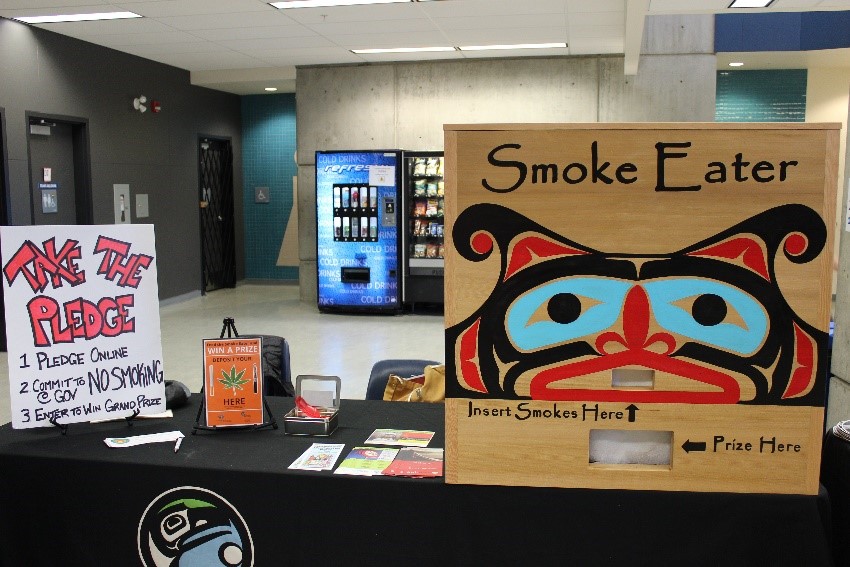In recognition of World No Tobacco Day that is promoted by the World Health Organization (WHO) on May 31, the First Nations Health Authority (FNHA) would like to celebrate Tobacco Awareness Day.
The FNHA recognizes that a “no tobacco" approach does not reflect the cultural realities of all First Nations in British Columbia (BC). Tobacco Awareness Day is intended to celebrate the sacredness of traditional tobacco as a medicine and bring awareness to the harms of commercial tobacco use in solidarity with the WHO and World No Tobacco Day.
Traditional versus commercial tobacco
The health risks associated with commercial tobacco use are well documented and experienced by those who smoke or vape. However, it's important to recognize the importance of traditional tobacco in First Nations cultures and the differences between traditional and commercial tobacco.
For thousands of years, traditional or natural tobacco has been an integral part of Indigenous culture in many parts of British Columbia and Canada. Tobacco is considered a sacred plant with immense healing and spiritual benefits and is often used in ritual, ceremony and prayer.
It's important to not confuse traditional tobacco and its sacred uses with commercial tobacco and the harmful health impacts and addiction epidemic we see today.
Resources to help quit commercial tobacco
We know that reducing or quitting commercial tobacco can be a challenge. The FNHA offers many resources and support services to help you in your journey to reduce or quit commercial tobacco.
To start, try making small changes to your daily habits and routines that can reduce the harm related to commercial tobacco products. You can try:
- Reducing the number of cigarettes or times you vape per day. This can be accomplished with or without nicotine replacement therapy.
- Replacing cigarettes with a vaping product. If you currently smoke cigarettes, vaping may be less harmful for you. Vaping can reduce an existing smoker's exposure to toxic and cancer-causing chemicals.
- Being mindful of your habits. Try to reduce or quit your commercial tobacco consumption by identifying what motivates you to smoke or vape and how frequently you smoke or vape.
Many people will require additional support in their path to reduce or quit commercial tobacco. Talk Tobacco offers free, culturally-safe and confidential support for quitting smoking or vaping to First Nations communities in BC.
Talk Tobacco's phone, live chat and text services connect you with a coach for real-time, personalized support wherever you are in your harm reduction journey. They can help you create a personalized quit plan and help you find additional supports and resources in your area.

The FNHA uses a “Smoke Eater" at community events and conferences to encourage people to commit to reducing or eliminating commercial tobacco. The Smoke Eater is designed like a Bentwood Box to receive “offerings" of commercial tobacco products in exchange for gifts and resources to support them in their health journeys.There are also programs and products available to help you quit smoking that are covered under the BC Smoking Cessation Program or the FNHA Health Benefits Program. These include nicotine replacement therapies and prescription medications that can be helpful in your journey to quit commercial tobacco.
For more information on the risks of smoking and vaping and a full list of support services visit our Respecting Tobacco page.
To learn more about the WHO and their World No Tobacco Day: Grow Food Not Tobacco campaign, visit their webpage.

